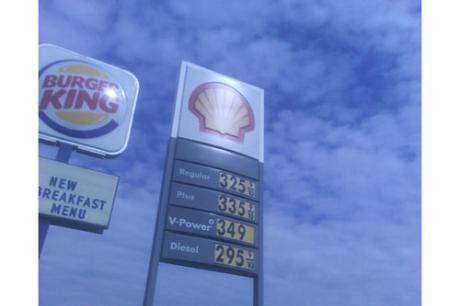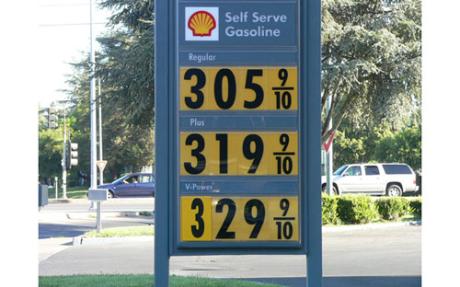
 Bev Sykes
Bev SykesThe financial impact of the increase of gas prices throughout the country has taken the enjoyment out of traveling for many people.
Gas prices rose a full nine cents from last week, according to John Paul, a spokesman for the American Automobile Association (AAA). A Feb. 25 survey revealed that customers pay an average of $3.09 per gallon in the United States. Gas prices ranged from $2.95 to $3.25 per gallon last week.
According to the U.S. Energy Department, gas prices will peak near $3.40 this spring.
“If gasoline prices keep rising, it will reduce consumer spending on other products, which will be one more factor tending to push the U.S. economy into a recession,” said University of Massachusetts economics professor David Kotz.
For UMass students living off campus, new gas prices are causing headaches.
“It has a huge effect on me,” sophomore Loraine Burger said. “It’s basically the main reason I work 25 hours a week while going to school full-time.”
Sophomore Kevin Maio is also facing similar problems with gas.
“I try to drive as little as possible now,” he said. “Having my car on campus is a bonus, but with gas prices rising, it is more of a hassle and a real burden on my wallet.”
Many people are finding alternate methods of transportation to save on gas, such as using the public transportation systems or carpooling with family and friends.
Members of the UMass community can take advantage of the Pioneer Valley Transit Authority (PVTA) public transportation system. The PVTA serves many purposes, bringing students back and forth to dorms, transporting students to off-campus housing, bringing students to local retail establishments and transporting students to the other Five College campuses.
“I try to drive as little as possible because gas has gotten so expensive,” UMass senior Chris Soper said. “I take the PVTA every day to and from class, especially during the wintertime.”
According to UMass economics professor Michael Ash, a history of cheap gas created a society based on automobile independence.
“Because so much of our infrastructure was built during a period of cheap gas, we don’t have a society that is well set up for carpooling, buses and other mass transportation,” he said. “I expect that there will be more carpooling, but it’s unlikely to be enough to shield households from the higher price of gas.”
People may begin to turn away from Sport Utility Vehicles such as Ford Explorers and trucks to more fuel-efficient cars.
“I have a v-10 in my truck and it eats up gas. I can watch my gas gauge drop sometimes,” said sophomore Mike Berthiaume. “But I don’t have a choice. I guess I’ll just keep paying these ridiculous prices.”
According to the 2008 Environmental Protection Agency and Department of Energy’s fuel economy guidebook, the top 5 leaders of fuel-efficient cars are the Toyota Prius (hybrid-electric), the Honda Civic Hybrid, the Nissan Altima Hybrid, the Ford Escape Hybrid and the Toyota Camry Hybrid.
“There will probably be a shift toward smaller, more fuel-efficient cars,” Kotz said. “So far electric cars are expensive, so it is not clear that they save money compared to gasoline cars.”
Alyssa Montalbano can be reached at [email protected].






